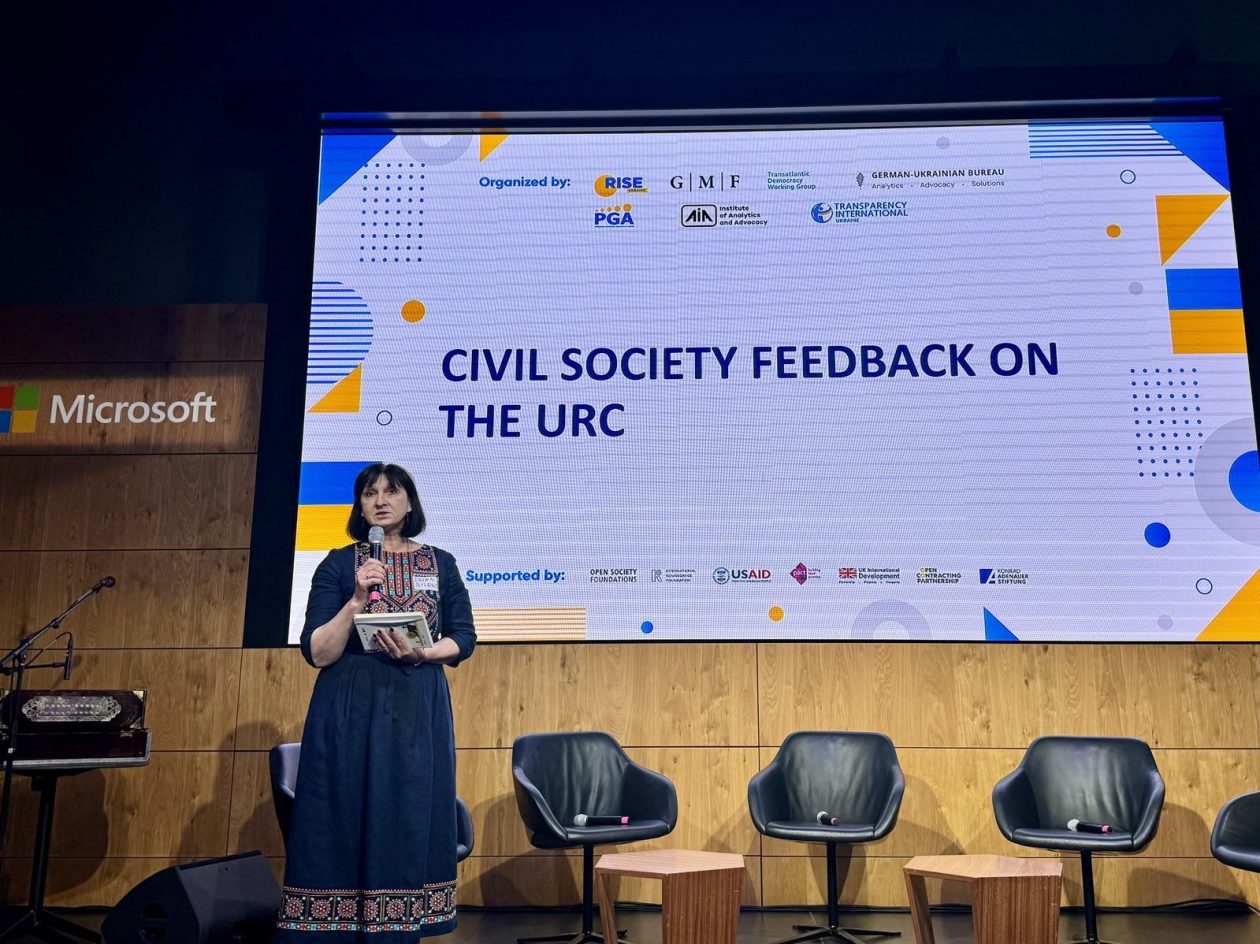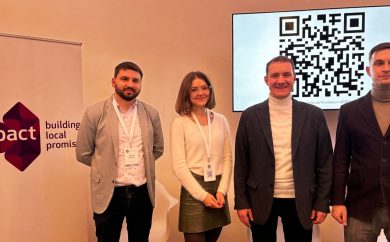From June 11-12, ENGAGE participated in the 2024 Ukraine Recovery Conference (URC). Over 3,400 participants from 60 countries, representing public, private and civil society sectors gathered to discuss how to coordinate the war-time recovery, reconstruction and modernization of Ukraine. URC 2024’s emphasis on the swift recovery and long-term reconstruction of Ukraine through private investment, human capital, local initiatives, and progress in implementing reforms stipulated by the EU form the bedrock of Ukraine’s war-time recovery approach. While this focus largely mirrors that of previous iterations, URC 2024 aimed to enhance sector-specific and cross-sectoral ties between Ukrainian public officials, businesses, civil society actors, and their EU and international counterparts.
Below, we offer our key takeaways from the conference.
No Recovery without Air Defense
Although energy, security and investment comprise the primary pillars of Ukraine’s recovery, conference participants repeatedly highlighted physical security as a prerequisite for any meaningful long-term recovery. Any plan to aid Ukraine’s recovery that relies heavily on private investments while ignoring the importance of adequate physical security simply does not reflect reality on the ground. The general recognition among conference participants was that without adequate air defenses, the overall economic recovery prospects for Ukraine are gloomy at best. The urgency for both air defense and electric power, inextricably intertwined, was made at the highest level by President Zelenskyy in his opening address and later reaffirmed by Kharkiv’s mayor, Ihor Terekhov. Encouragingly, following these statements, international partners used the conference to announce a series of air defense deliveries to Ukraine.
Limited Cross-Sectoral Interaction
We observed that while this URC had adequate and balanced representation from national, regional, local authorities, as well as civil society, and made efforts to integrate gender-responsive and inclusive recovery perspectives to ensure an “all-of-society” approach, interactions between disparate stakeholders were limited. As a platform, the conference did enable extensive networking opportunities, but these interactions were largely peer-to-peer rather than cross-sectoral. As a result, government officials focused more on connections with other government counterparts and donors than with civil society or businesses. Next year’s URC, scheduled to take place in Italy, should do more to encourage cross-sectoral collaboration and make interaction between government, civil society and businesses communities central to the conference’s focus. Doing so would establish the proper conditions for a real exchange of ideas between civil society, the Ukrainian government, and international partners.
Civil Society’s Role in Ensuring Transparency and Accountable Recovery
Civil society’s involvement in Ukraine’s recovery, reforms and reconstruction efforts is indispensable for ensuring public confidence in government policies and in overcoming skepticism within the country and among international partners on the recovery processes. The involvement of civil society at all stages of planning and implementation at the local, regional and national level is crucial for ensuring transparency and accountability. Commonly used terms at the conference like “bottom-up” or “community-led” ring hollow in the absence of political will and a genuine resolve to work closely and constructively among all stakeholders, including civil society. Given the substantial funds mobilized—16.8 billion euros—the need for stringent oversight and accountability mechanisms is paramount.
Tailoring Support for Varied Local Capacities
The level of community capacity for recovery varies significantly, necessitating partnerships with civil society to ensure a high-quality recovery process and build trust while ensuring transparency and accountability. Training local authorities alone will not suffice, especially given the depletion of human resources at the local level, which is particularly relevant for liberated border communities in the north, east, and south of Ukraine. Funding for local reconstruction must account for the different types of communities, addressing the evident disparities in resource access. Tailored approaches are required based on unique geographical contexts, such as proximity to frontlines, and the specific characteristics of local authorities. Proposals were made among participants to establish local recovery agencies that could effectively manage recovery projects and serve as competent local administrations.
Strengthening Connections Between Ukrainian and European CSOs
Ukrainian local CSOs were eager to establish more connections with their European counterparts. Despite this interest, European CSOs were underrepresented compared to foreign government officials, who appeared less engaged with the local Ukrainian context. It is essential to link Ukrainian local communities with their EU counterparts to facilitate the exchange of experiences and lessons learned with the intent of mutual strengthening and capacity enhancement. The long-term impact will be a better equipped, skilled and independent civil society underpinned by strong foundations in human rights and democratic values. The next conference should prioritize the inclusion of more European experts and professionals who are familiar with Ukraine to foster meaningful collaboration and support.


